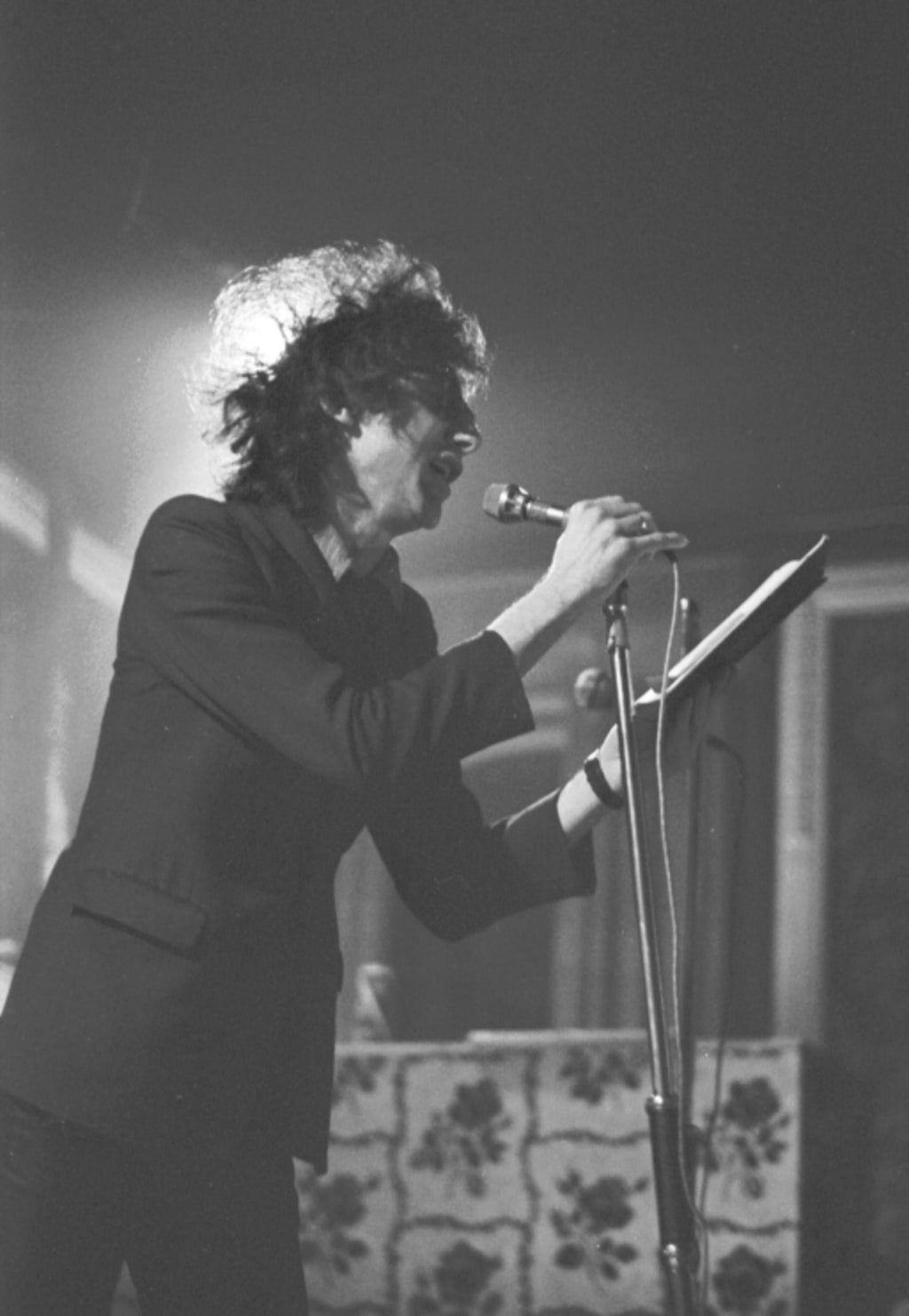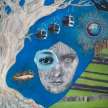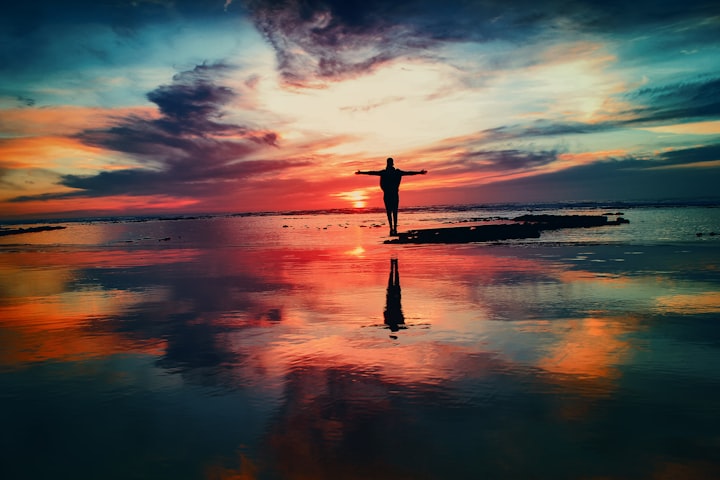It Isn’t Punk to Seek Permission
An Introduction to Punk Poetry and its Influences

It Isn’t Punk to Seek Permission* - An Introduction to Punk Poetry and its Influences
I’ve been into punk since I was 15 and through this I discovered poets such as John Cooper Clarke, Attila the Stockbroker, and Joolz Denby. This eventually led me to write myself.
Poetry and underground music scenes have had an ongoing association. For instance, Beat poet Allen Ginsberg had a long affiliation with the activist band The Fugs, who are considered to have influenced the punk movement. Lou Reed of the Velvet Underground studied under poet, Delmore Schwartz at Syracuse University: Reed said that Schwartz had showed him how ‘with the simplest language imaginable, and very short, you can accomplish the most astonishing heights.’
The American punk poets Patti Smith and Jim Carroll took considerable influence from the Beat scene. Smith famously had poetic obsessions with the English Romantic poet William Blake and the French Symbolist poet Arthur Rimbaud, as well as her admiration for Bob Dylan. Carroll cited poets such as Frank O Hara, John Ashbury and Rainer Maria Rilke as influences. The anarchistic outlook of these older poets must have struck a chord to a burgeoning punk scene, intent on challenging authority and the old order. Jim Carroll’s autobiographical novel The Baseball Diaries was made into a film, which was where I first came across him.
On this side of the Atlantic poets with a more radical approach began to perform on the UK scene and engage in musical collaborations. Surprisingly, I can’t find a great deal to suggest the Liverpool Beat scene had much influence on the UK based punk-poets of the 70s. I would guess Bob Calvert, a poet and writer as well as lyricist and vocalist for space-rock band Hawkwind, must have been some influence, as the band were a big influence on the UK punk scene and DIY ethic.
John Cooper Clarke, whom I’m sure most of you will have heard of, had been performing in working men’s clubs on the Northern circuit prior to opening for bands such as The Sex Pistols and The Buzzcocks. On his recent Desert Island Discs recording, Cooper Clarke says his teacher, John Malone, inspired him to write, through Malone’s obsession with the romantic poets. Cooper Clarke says, in particular, he took a liking to Edgar Alan Poe, and cites French 19th century poet Charles Baudelaire as his enduring number one.
Nick Tockzek was another Northern performance poet who found himself drawn to the punk scene. He is still writing and recording and is a respected researcher of right-wing thought and organizations – in order to better understand why people are drawn to it. His first political work The Bigger Tory Vote was published in 1991, by the anarchist AK Press.
Joolz Denby became interested in the punk scene while working as a bouncer at a Bradford club, and began writing poetry around the same time. She would later collaborate with punk bands and musicians such as the New Model Army and Jah Wobble.
Patrik Fitzgerald had success on the 1970s punk scene – the EP A Safety Pin Stuck in My Heart – a love song for punk music, being his best known work. Some critics called him the new Bob Dylan.
Ian Dury, another poet-vocalist, had played with the ‘pub rock’ band Kilburn and the High Roads since 1971 until he rose to fame in the late 70s with The Blockheads. Though not strictly punk, I think he deserves a mention.
Ranty poet Attila the Stockbroker began to perform in the late 70s, inspired by the ‘Do It Yourself’ spirit of the punk bands he heard, particularly the socialist stance of the Clash.
Other notable punk poets of the era include Porky the Poet AKA comedian Phil Jupitas, Swift Nick, Janine Booth, Mark Mywurdz and Seething Wells. John Hegley, of course, had his band The Popticians, who’d record a Peel Sessions in July 1983. The early 80s anarcho-punk of Crass had much in common with spoken word, as did the more psychedelic-punk sound of Zounds and the band’s lyricist and vocalist Steve Lake performs spoken word on occasion. Rosie Garland, vocalist of early 80s post-punk goth band The March Violets, is now a regular writer and performer of poetry and an acclaimed novelist. I would also include The Boiler, released in 1982 0n the 2-Tone label under the name of Rhoda with the Specials AKA – a harrowing spoken-word narrative of sexual violence accompanied by ska music, which must have been shocking even to punk and ska audiences. Despite a lack of air-play, the single made it to number 35 in the charts.
From these roots, alongside poets from the dub-poetry scene such as Linton Kwesi Johnson, Jean Binta Breeze and Benjamin Zephaniah, a performance poetry scene established itself in the UK in the 1980s. It continued to critically engage with social and political issues, chronicle real life, or simply be anarchic.
The actor Craig Charles began his life as a punk poet. I remember Charles and Benjamin Zephaniah on TV in the 1980s, and that would be my first engagement with poetry beyond school text books: poetry that talked about real life and current issues. By the mid-80s punk poetry had become so mainstream that Charles had a weekly poetry slot on the BBC1 prime-time talk show Wogan.
There are many contemporary spoken word artists performing at festivals, and poetry events. However, I haven’t seen a great deal of spoken-word artists on punk gig line-ups lately and I feel it would be a good thing to see more of it. It is my opinion that the punk-poetry scene should receive wider acclaim and be considered on its own terms as an important cultural movement and form of artistic expression. This brief essay cannot do it justice, and it deserves further exploration.
Part II – a playlist of artists and tracks mentioned in this essay– coming soon.
*Title taken from Selena Godden’s 2018 poem of the same name. I think it sums up the DIY spirit of Punk. The poem can be read in Godden’s collection Pessimism is for Lightweights – 13 Pieces of Courage and Resistance, published by Rough Trade http://roughtradebooks.com/editions/pessimism-is-for-lightweights/
About the Creator
Lauren M Foster
Writer, artist and musician based in Charnwood, UK. Drummer/vocalist in a psychedelic-punk-band The Cars that Ate Paris.






Comments
There are no comments for this story
Be the first to respond and start the conversation.